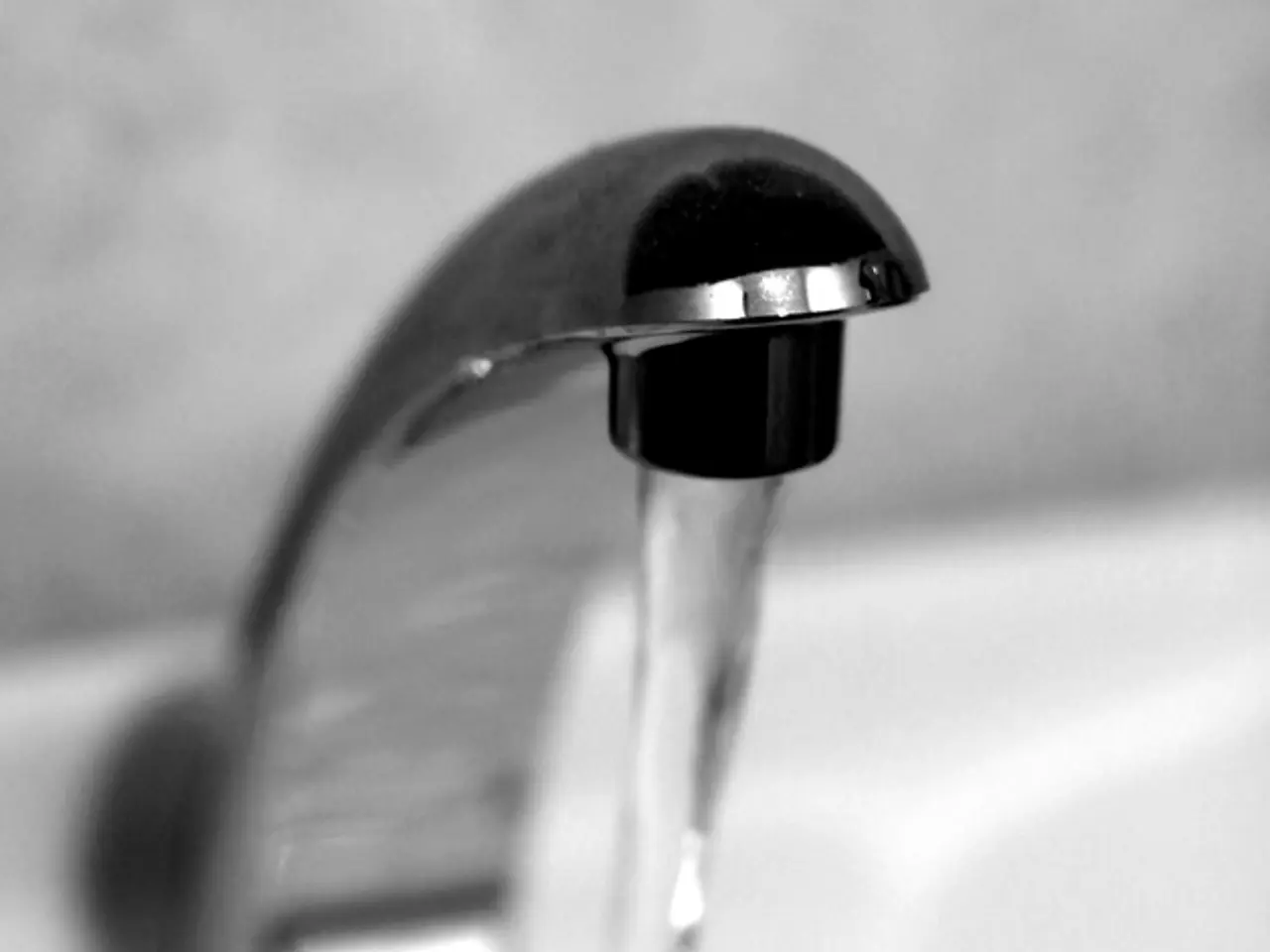Citizens of small urban areas are voicing their anger due to being advised to consume water from taps that have a moldy odor and resemble urine in appearance.
In the cities of Talmadge and Akron, Ohio, residents are expressing concern over foul-smelling water that has been attributed to the presence of Methylisoborneol (MIB) and Geosmin, natural compounds released during algae blooms in the reservoir.
Some residents have reported that the water smells metallic and tastes terrible, while others in Talmadge describe it as resembling urine. This is not the first time residents of Talmadge have experienced bad water conditions, with some claiming it is a recurring issue. The little town of Talmadge, home to a little over 18,400 residents, is not alone in this predicament, as residents in Akron, with a population of approximately 190,000, are also affected.
The cities' administrations have asserted that the water is safe to drink, cook with, and use for bathing and pets. However, this message has not been well-received by locals in Akron, who question the safety of the water. One commenter stated that they already don't drink the water and don't want to shower in it. Another resident in Talmadge expressed their infuriation over the foul-smelling tap water.
Health effects from exposure to moldy-smelling water can include respiratory issues, allergic reactions, and infections. Moldy-smelling water can cause a slew of health conditions, including digestive problems, skin irritation, neurological effects, reproductive difficulties, and, in severe cases, autoimmune diseases. The toxic compounds produced by mold, called mycotoxins, can disrupt immune function, damage the liver, and increase the risk of long-term health conditions, including cancer in some cases.
To address the issue, the city's administration in Akron is bringing legislation to the Akron City Council (July 28) to purchase additional Jacobi Carbon to supplement the treatment process. Stephanie Marsh, the director of communication for Akron, has stated that the city is aware of the growing complaints about foul-smelling tap water.
Residents who detect moldy-smelling water are recommended to avoid consumption until the source is identified and resolved, and to have water tested and treatment systems inspected or updated. Professional remediation may be necessary to eliminate mold from the water supply or household plumbing.
It's important to note that the water supply in Talmadge and Akron comes from three reservoirs that take surface water from the Upper Cuyahoga River before being brought to the cities' water supply. Despite the assurances from officials, many residents are not convinced the compounds are to blame and question the safety of chemicals being used to remove the smell.
In conclusion, the foul-smelling water in Talmadge and Akron, Ohio, has caused concern for residents and raised questions about the safety of the water supply. As the cities work to address the issue, residents are advised to take precautions and have their water tested to ensure it is safe for consumption and use.
- The concern over foul-smelling water in Talmadge and Akron, Ohio, extends beyond mere olfactory issues, as health effects from exposure can range from respiratory issues to autoimmune diseases.
- handling the issue, the city of Akron has proposed purchasing additional Jacobi Carbon to supplement the treatment process, acknowledging the growing complaints about the smell of the tap water.
- As the water supply in Talmadge and Akron comes from the Upper Cuyahoga River reservoirs, some residents question the safety of the chemicals used to remove the smell and seek alternative explanations for the problem.




